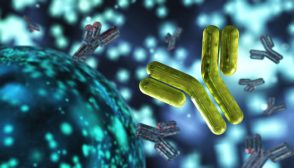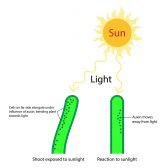monoclonal antibody
(Science: immunology molecular biology) A substance, usually a protein, which can be synthsised in the laboratory in pure form by a single clone (population) of cells.
These antibodies can be made in large quantities and have a specific affinity for certain target molecules called antigens which can be found on the surface of cells and those that are malignant.
monoclonal antibodies are currently being investigated as a possible form of cancer treatment although their benefit has not be fully proven.
Dictionary > Monoclonal antibody
You will also like...

Passive and Active Types of Immunity
Lymphocytes are a type of white blood cell capable of producing a specific immune response to unique antigens. In thi..

Running Water Freshwater Communities
This tutorial introduces flowing water communities, which bring new and dithering factors into the equation for possible..

Abiotic Factors – Water Conditions
A still body of water may be disturbed by a variety of factors. One of them is wind. In fact, it is considered as the pr..

Lotic Communities & Algae
Lotic communities have conditions that are rather harsh for typical plants. Thus, the diversity of plant species in loti..

Neurology of Illusions
Illusions are the perceptions and sensory data obtained from situations in which human error prevents us from seeing the..

Plant Auxins – Phototropism & Geotropism
Plants produce hormones to regulate their growth. Auxins, for instance, influence plant growth. Know the role of auxin i..

